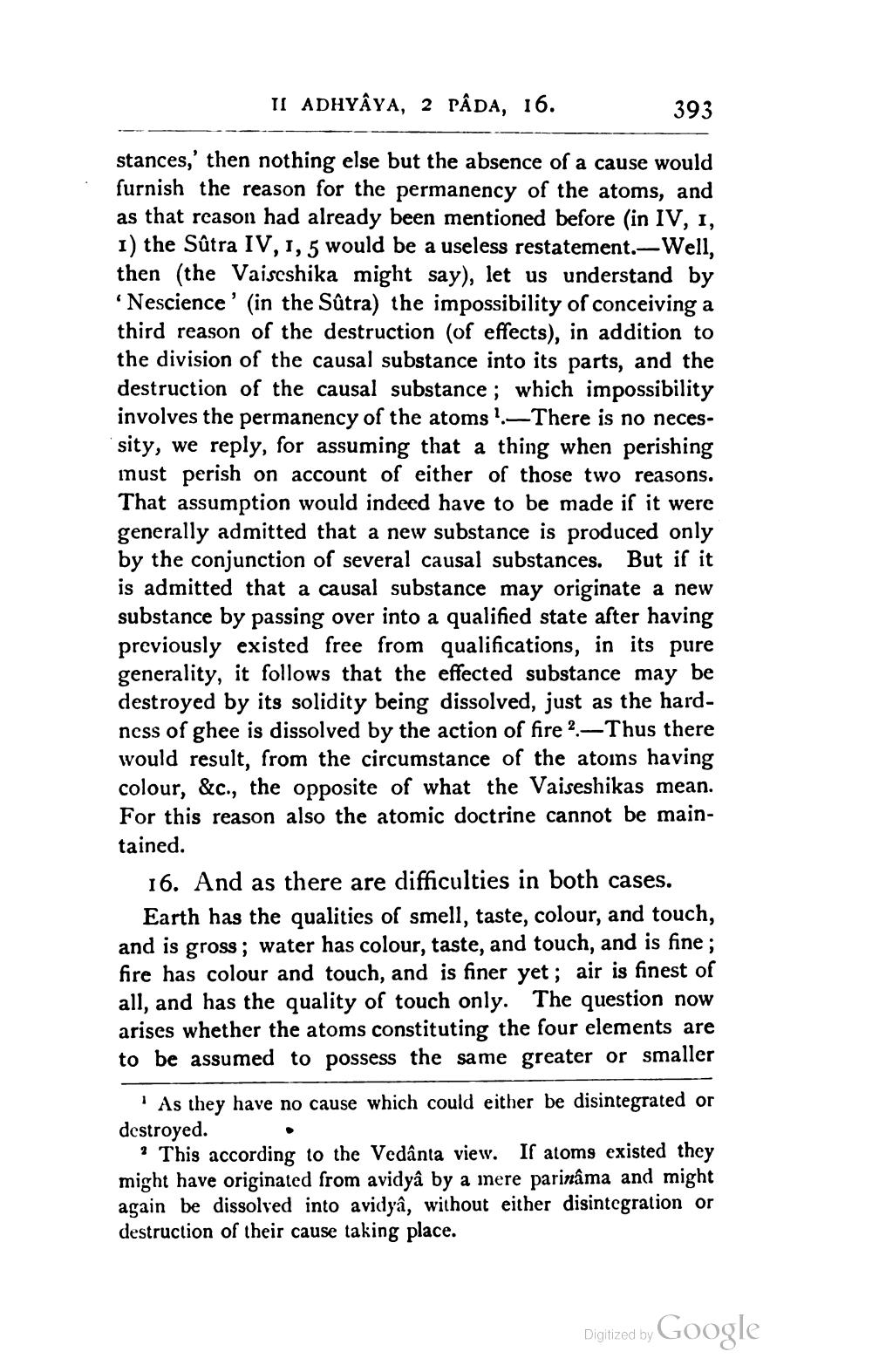________________
IL ADHYAYA, 2 PÂDA, 16.
393
stances,' then nothing else but the absence of a cause would furnish the reason for the permanency of the atoms, and as that reason had already been mentioned before in IV, 1, 1) the Sûtra IV, 1,5 would be a useless restatement.-Well, then (the Vaiscshika might say), let us understand by "Nescience' (in the Sûtra) the impossibility of conceiving a third reason of the destruction (of effects), in addition to the division of the causal substance into its parts, and the destruction of the causal substance; which impossibility involves the permanency of the atoms ?. — There is no necessity, we reply, for assuming that a thing when perishing must perish on account of either of those two reasons.
That assumption would indeed have to be made if it were generally admitted that a new substance is produced only by the conjunction of several causal substances. But if it is admitted that a causal substance may originate a new substance by passing over into a qualified state after having previously existed free from qualifications, in its pure generality, it follows that the effected substance may be destroyed by its solidity being dissolved, just as the hardness of ghee is dissolved by the action of fire 2.—Thus there would result, from the circumstance of the atoins having colour, &c., the opposite of what the Vaiseshikas mean. For this reason also the atomic doctrine cannot be maintained.
16. And as there are difficulties in both cases.
Earth has the qualities of smell, taste, colour, and touch, and is gross; water has colour, taste, and touch, and is fine; fire has colour and touch, and is finer yet; air is finest of all, and has the quality of touch only. The question now arises whether the atoms constituting the four elements are to be assumed to possess the same greater or smaller
As they have no cause which could either be disintegrated or destroyed.
? This according to the Vedanta view. If atoms existed they might have originated from avidyâ by a mere parinâma and might again be dissolved into a vidya, without either disintegration or destruction of their cause taking place.
Digitized by
Digized by Google




